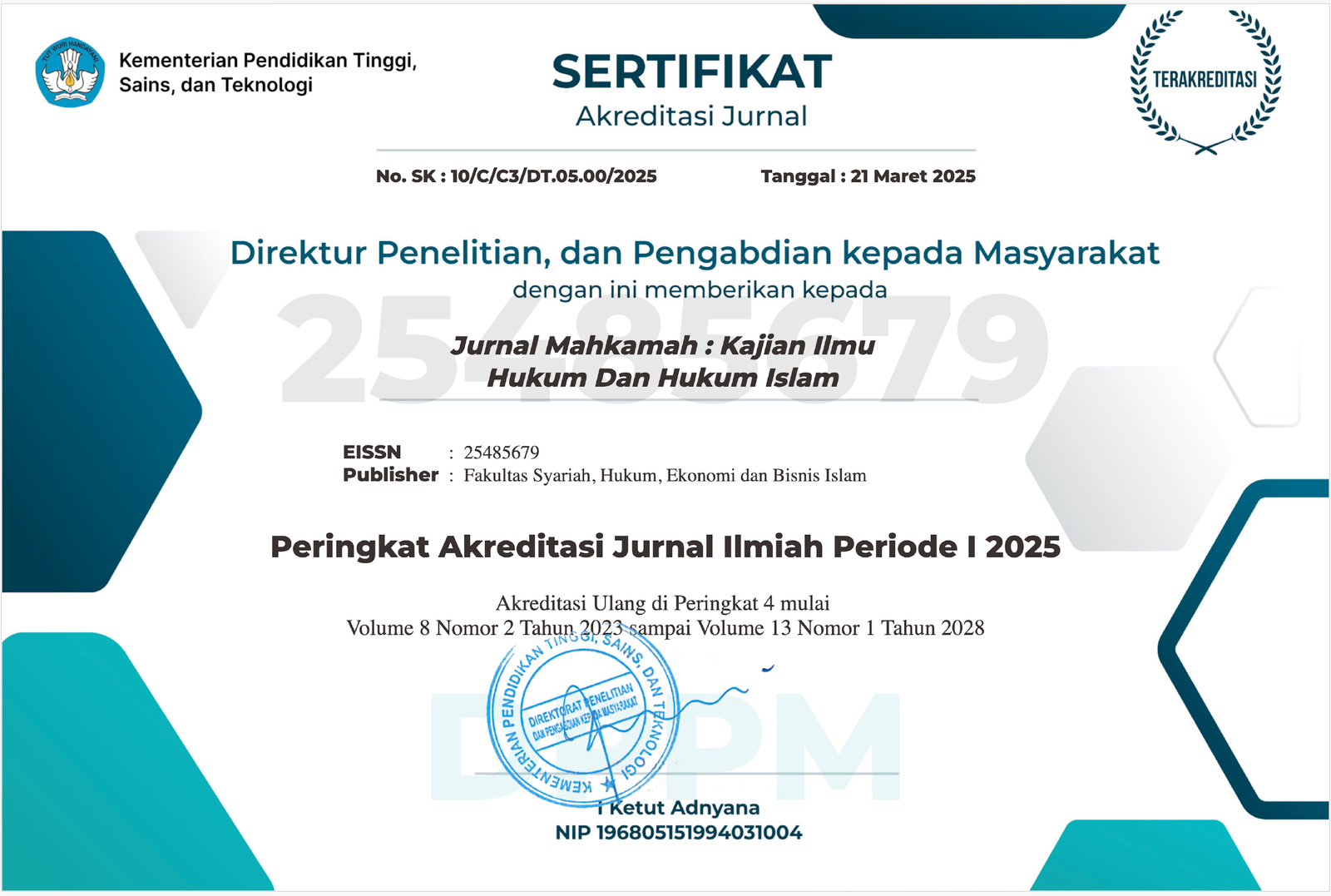PENDAPAT PARA FUQOHA DAN MAJELIS ULAMA INDONESIA (MUI) TENTANG FILOSOFI DAN HIKMAH LARANGAN PERNIKAHAN BEDA AGAMA SERTA DAMPAKNYA
DOI:
https://doi.org/10.25217/jm.v1i1.42Keywords:
Tribunal Cleric Indonesian, of Marriage Different Religions And Its ImpactAbstract
Marriage as in islamic law is not civil case alone. But ties saint to mistaqan ghalizhan is a firm covenant and strong. For that marriage be maintained well, so what be the goal marriage namely the formation of family couple mawaddah wa mercy can be achieved. According to the indonesian ulemas council one of a barrier the formation of the purpose of marriage as above, is marriage different religion .But phenomena marriage different religion occurring dimasyarakat actually of an increasing and as if becomes regular issues. Remembering how the importance of problems marriage different religion widespread in indonesia.Hence, the indonesian ulema menguluarkan fatwa on prohibition of different religion marriage.Focus of study this writing is: (1) Think fuqoha and the indonesian ulema about a philosophy and wisdom ban different religious marriage? (2). How the impact of marriage different way?
Downloads
Published
How to Cite
Issue
Section
License
This work is licensed under a Creative Commons Attribution-ShareAlike 4.0 International License.
Authors retain copyright and grant the Jurnal Mahkamah : Kajian Ilmu Hukum Dan Hukum Islam right of first publication with the work simultaneously licensed under a Creative Commons Attribution License (CC BY-SA 4.0) that allows others to share (copy and redistribute the material in any medium or format) and adapt (remix, transform, and build upon the material) the work for any purpose, even commercially with an acknowledgment of the work's authorship and initial publication in Jurnal Mahkamah : Kajian Ilmu Hukum Dan Hukum Islam.
Authors are able to enter into separate, additional contractual arrangements for the non-exclusive distribution of the journal's published version of the work (e.g., post it to an institutional repository or publish it in a book), with an acknowledgment of its initial publication in Jurnal Mahkamah : Kajian Ilmu Hukum Dan Hukum Islam.
Authors are permitted and encouraged to post their work online (e.g., in institutional repositories or on their website) prior to and during the submission process, as it can lead to productive exchanges, as well as earlier and greater citation of published work (See The Effect of Open Access).









